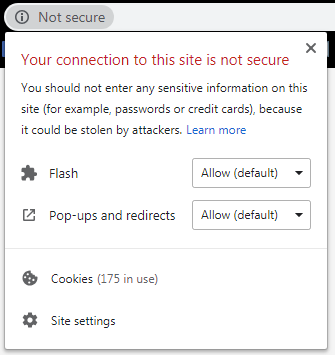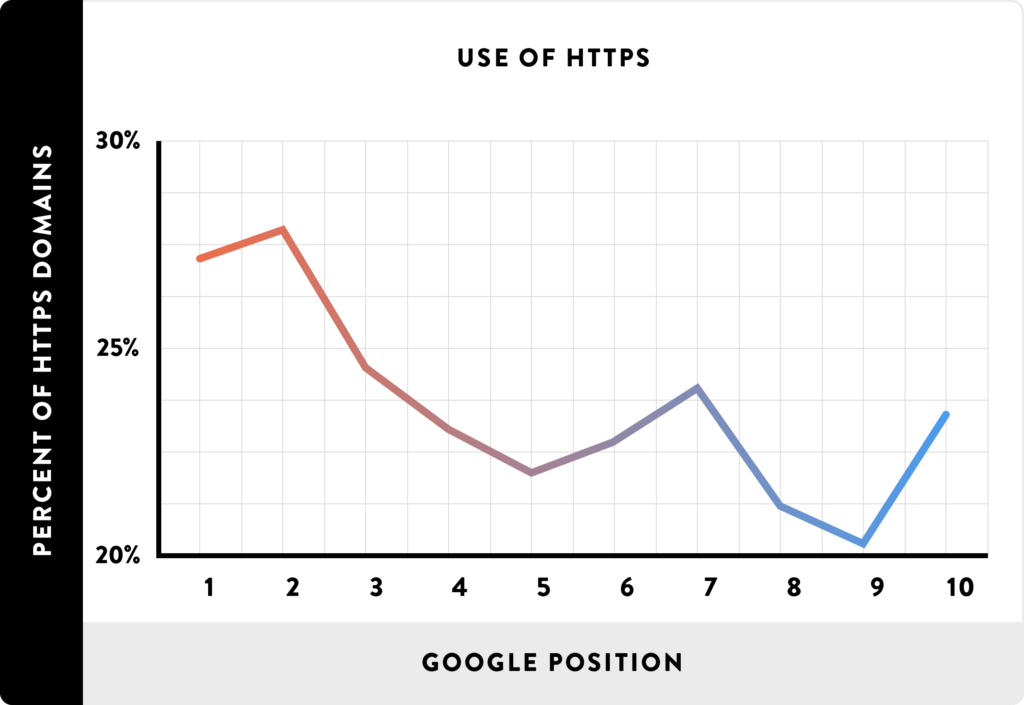What are the benefits of an SSL certificate?
Security is a well-known benefit of an SSL certificate but it doesn't end there. We're here to help you discover the less known advantages of using HTTPS over HTTP, as well as warn you about certain myths. Written by Dawid ZimnySSL certificate improves security
Let’s address the obvious aspect first. Security was the sole purpose of implementing SSL certificates. Encrypting sensitive data to make it undecipherable is incredibly important, especially with data privacy being a hot topic in recent years.
Security builds trust and increases conversions
As of 2018, Google Chrome and Mozilla Firefox flag sites without an SSL certificate as “not secure”. A number of surveys have shown that visitors are less inclined to input their data and as much as 85% of customers won’t make a purchase if they’re not certain their input is processed securely.

The HTTPS connection provided by an SSL certificate will increase the conversion rate on virtually any site. In 2008 Papercheck reported a 30% boost in conversion rates, 87% more registrations and a 13% drop in cart abandonment.
Considering the strict approach to web security of companies like Google and Mozilla, paired with the increased awareness, there’s a chance your company will see similar – or even better – results.
How SSL impacts Google search rankings
Google’s aforementioned approach to security was evident back in 2014 when they announced HTTPS as one of the search ranking factors. That’s not to say you should get an SSL certificate purely to improve your SEO, but there is enough evidence of it slightly affecting the search rankings. Treat it more like an additional benefit.

How SSL impacts page speed
Slow websites are frowned upon by both visitors and search engines. There is a lot of misconception regarding the performance of an HTTPS connection, with some sources claiming it’s faster than HTTP.
The HTTPS connection happens over the HTTP protocol and is secured by your SSL certificate. In short, it’s “HTTP and more”, which by design can’t be faster. There are additional implementations of protocols that are indeed both secure and faster than HTTP in the 1.1 version. However, the technical details are far beyond the scope of this article.
The most important takeaway is that your visitors will rarely ever notice a slowdown of HTTPS and certainly not one that would outweigh its benefits. SSL certificates used to be computationally expensive but the modern hardware is so powerful that the difference is unnoticeable.
Google AMP requires SSL certification
Even though the improvement in page speed by using HTTPS is a myth, there’s one thing to keep in mind. The Accelerated Mobile Pages (AMP) project by Google definitely improves your mobile load times and using AMP requires a secure connection.
You can get an SSL certificate for free
For years the cost of a secure connection was seen as a drawback for some website owners. It’s not anymore. Let’s Encrypt is an open initiative for web security, founded by Mozilla and Cisco, and supported by brands like Chrome and Facebook.
Free Webinar
How Long Does It Take To Build The Website?
Are you stuck on a website project that never ends?
Learn why the typical approach to building a website takes so long, and why it has a negative effect on the outcomes.
Discover the alternative way of building a website in our free webinar.
Get access to the webinarOriginally published Mar 07, 2019 11:27:38 AM, updated June 1 2023.



Join the conversation
Looking to share your feedback and join in on the conversation?